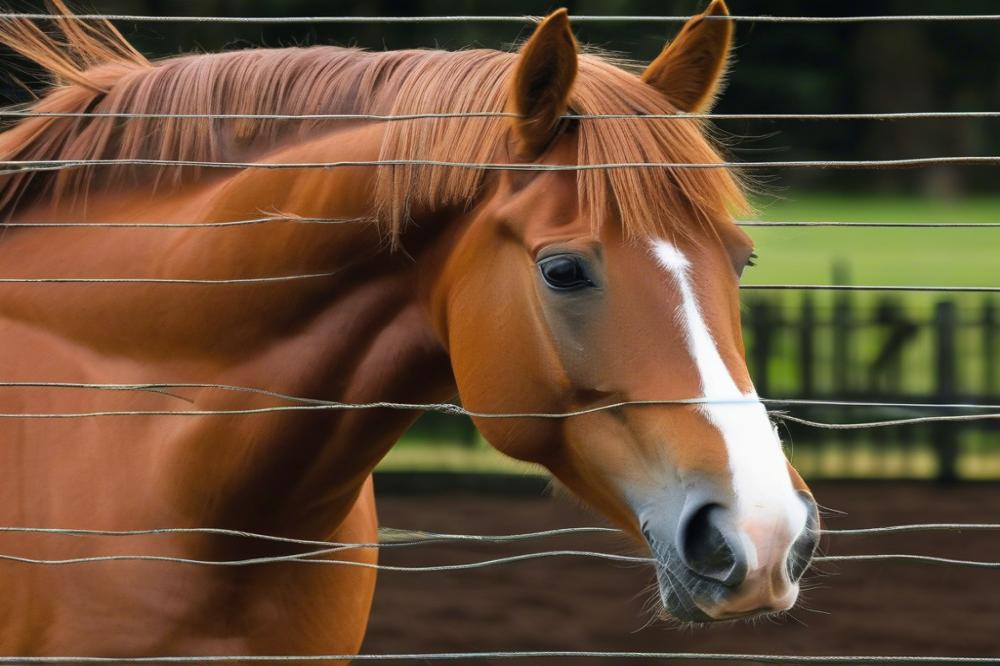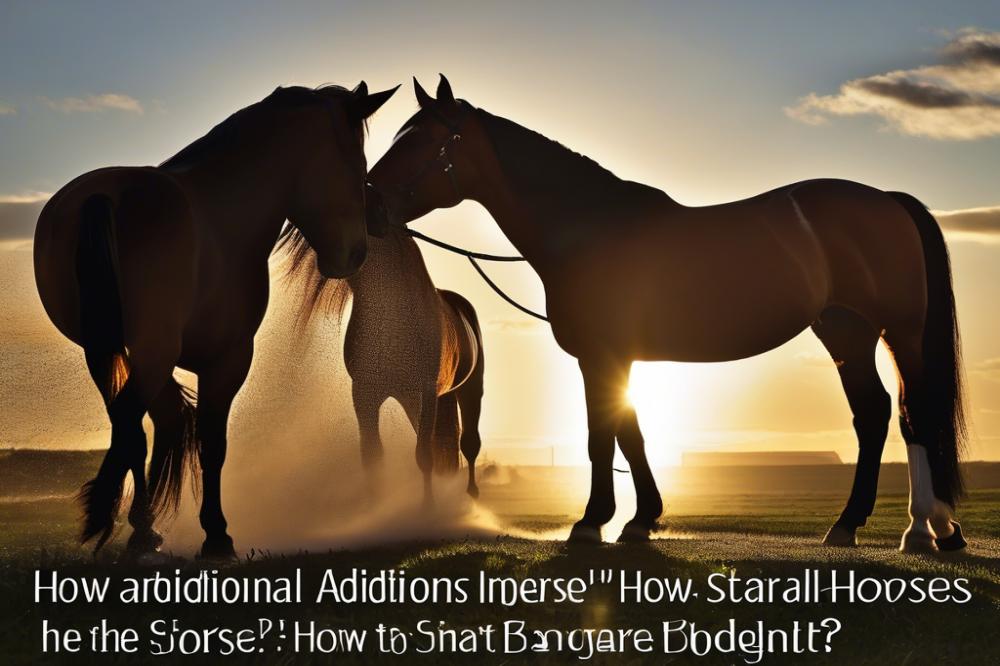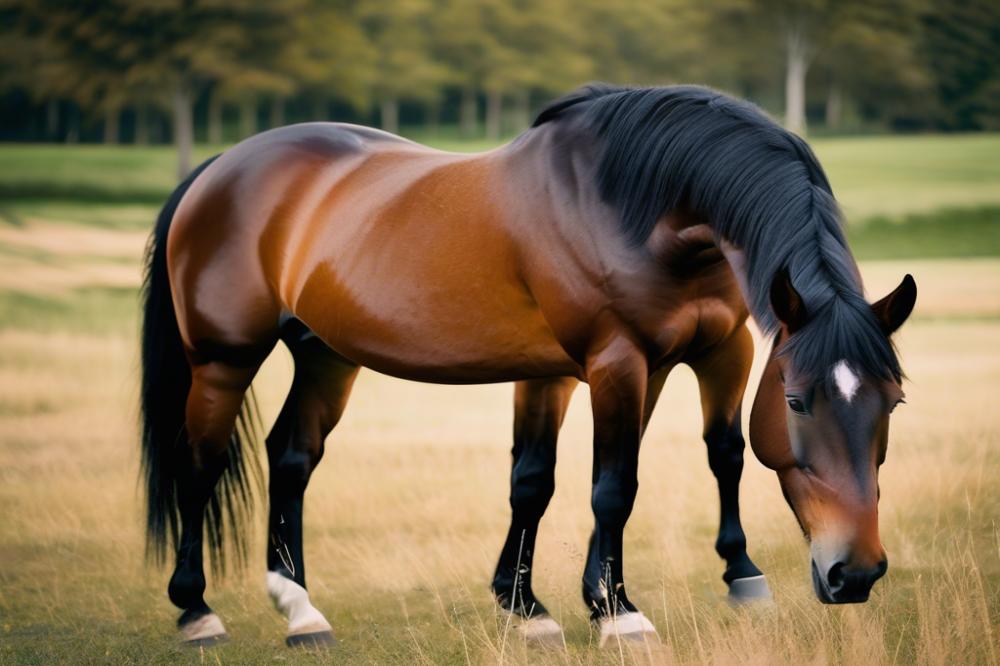Understanding the Smarts of Horses
When we think about intelligence in animals, our minds often wander to creatures like dolphins or monkeys. However, horses also have a brain full of surprises! Their smarts can shine through in various aspects of their horse behavior. Understanding how intelligent horses really are can open doors for better horse training methods and enhance the way we engage with these splendid animals.
Studying horse learning abilities is not just about curiosity; it plays a crucial role in horse care and overall welfare. Knowing how a horse thinks and responds helps owners and trainers bridge the communication gap. You see, every horse, from a majestic appaloosa mustang to a quiet thoroughbred, has its personality and quirks. Grasping these traits can lead to more meaningful relationships and effective training programs. Who wouldn’t want to be able to communicate like a horse whisperer?
This article aims to highlight the fascinating world of horse intelligence. We’ll discuss various aspects of their cognitive abilities and how understanding them can make a world of difference in your interactions with these animals. So, buckle up, as we trot through the realms of horse smarts, from their instinctive behaviors to how they shine in the big American horse races. By the end, you might just find yourself seeing horses in a whole new light!
Understanding Horse Intelligence

Definition of Intelligence in Animals
Intelligence isn’t just about having a big brain. It’s how animals learn, adapt, and solve problems. For many creatures, this can mean figuring out how to get food or avoid danger. In the animal kingdom, intelligence often shows itself in the way animals respond to their environment. It involves memory, social interaction, and even emotional understanding.
Different Types of Intelligence
Animals show various forms of intelligence. Some might excel in problem-solving, while others might shine in social knowledge. Dogs are great at bonding with humans, while crows can solve puzzles. When it comes to horses, their strength lies in their ability to learn from their surroundings and from people. Equine cognition also includes understanding cues and commands during training. Each species has its special skills that help them survive and thrive.
Comparison of Horse Intelligence to Other Animals
Horses have a different way of showcasing their smarts compared to cats or dogs. They are social animals, often thriving in herd settings. This tendency allows them to communicate and cooperate effectively within groups. It’s fascinating how horse behavior can reflect emotional responses and awareness of their surroundings. In the world of animal intelligence, horses may not be the top of the class, but they certainly hold their own.
When you think about horse learning, it’s clear that these animals pick up on patterns and cues quickly. Their memory is impressive. For instance, horses can remember an experienced rider or former training methods for years. Imagine a horse spotting an old friend from a distance; they recognize and react in a meaningful way!
Natural instincts also play a crucial role. Horses instinctively understand their environment, spotting potential threats. This ability helps them react quickly. While they may not perform tricks like some pets, their intelligence shines in their connection with humans and their sensitivity to emotions. Horse care is greatly improved when owners understand these intelligent behaviors. You might say that horses are like the thoughtful observers of the animal world, processing everything around them with keen insight.
Cognitive Abilities of Horses

Memory and Learning Capabilities
Horses have impressive memories. They can remember places and people for years. If you’ve ever met a horse, you might have noticed how they can recognize their owners from afar. This strong memory helps them in horse training. When a lesson is learned, it sticks with them. Just like a student with their favorite subject, a horse retains positive experiences.
Training can take various forms. Some horses respond best to visual cues, while others prefer verbal commands. Whatever the case, equine cognition plays a big role. A sudden change in routine might puzzle them for a moment, but they catch on pretty quickly. It’s fascinating how a horse’s brain works.
Problem-Solving Skills
Horses aren’t just beautiful creatures; they’re also quite clever. Watch them navigate through obstacles, and you’ll see some impressive problem-solving. It’s like watching a kid figure out a puzzle. Sometimes, they may even outsmart their humans! If they encounter a tricky situation, they often take a step back and assess what to do next.
When it comes to horse behavior, their instincts kick in. You might have noticed how they can find their way back to their barn even from a long distance. Their ability to think on their hooves is remarkable. They analyze situations to make decisions, just like we do when faced with a choice.
Spatial Awareness and Navigation
Knowing their surroundings is second nature to horses. They have keen spatial awareness. Just like how we navigate through a crowded room, horses move gracefully through their environments. The world looks different from their perspective. They can gauge distances and speed, which aids in avoiding obstacles.
Have you ever seen a horse maneuver effortlessly around objects? Their navigation skills are amazing. When galloping in a field, they can adjust their speed and path without hesitation. This awareness helps in horse care too. Ensuring that they are in safe spaces can prevent accidents. It’s important to understand their instincts and respect how they see the world around them.
Each horse has its intelligence, unique personality, and a special way of learning. Exploring these capabilities reveals just how special these creatures truly are.
Social Intelligence in Horses

Understanding Herd Dynamics
Horses are social creatures. They thrive in groups, often called herds. In these herds, each horse has its role. Some take the lead while others follow. This structure helps them survive and stay safe from predators. Watching them interact reveals their understanding of hierarchy. They know who is in charge and who is not. This awareness plays a vital part in their social structure.
Herd dynamics can change, especially when new horses join. Sometimes, fights break out to establish dominance. Other times, they may welcome a newcomer without fuss. It all depends on the personalities involved. Through these interactions, they learn about each other’s behaviors. It’s a bit like navigating a bustling schoolyard, with friendships and rivalries forming daily.
Communication Methods Among Horses
When it comes to communicating, horses have their own language. They use a combination of vocal sounds, body language, and even facial expressions. Whinnies, nickers, and snorts convey different messages. A horse may whinny to call for a friend or snort to signal caution.
Body posture matters too. Ears pinned back might mean a horse is irritated. On the flip side, relaxed ears signify a calm state. Horses also express feelings through movement. A horse that trots away quickly might be feeling threatened. Understanding these signals is crucial for effective horse training and care.
Sometimes, horses communicate in surprising ways. They can even learn to recognize human signals and respond accordingly. Imagine a horse that understands when its rider is anxious. That level of connection shows their emotional depth. It’s almost as if they can read our minds!
Emotional Intelligence and Bonding
Emotional intelligence in horses may surprise you. They build strong bonds not only with each other but also with their human caregivers. Have you ever seen a horse nuzzle its owner? That simple act speaks volumes about trust and affection.
Through experiences, horses exhibit learning and empathy. They comfort other horses in distress. Just like people, they feel joy during play and sadness during loss. This ability to connect on an emotional level is part of their charm. It is not just about instincts; it’s also about feelings.
Training a horse can be a partnership. Trust plays a significant role in it. A horse that feels safe is more likely to learn effectively. When they understand their environment and the people in it, it creates a bond unlike any other. Imagine teaching a horse a new trick and seeing it light up with excitement. That joy reinforces the entire learning process.
In the realm of animal intelligence, horses hold a special place. Their social structures, communication skills, and emotional connections highlight their sophistication. When you spend time with a horse, you realize there’s much more than meets the eye. There’s always a new lesson to discover in their world.
Research on Horse Intelligence
Key Studies and Findings
In recent years, scientists have taken a keen interest in how smart our equine friends truly are. Horses have shown surprising abilities that go beyond just trotting around a ring. They can learn complicated tasks and even solve simple puzzles. Studies reveal that horses use both memory and their senses in remarkable ways. For example, they can remember where food is hidden based on past experiences. This is a big deal when it comes to understanding animal intelligence.
Some researchers have focused on how horses communicate with humans. They often use facial expressions and even certain sounds to let us know what they want. Watching a horse’s ears flicker can tell you a lot about its mood. It’s not just random behavior; it’s a form of conversation. When training, these non-verbal cues come in handy. Trainers learn to read these signs to improve horse care and handle challenges effectively.
Methods of Assessing Horse Intelligence
How do scientists figure out what a horse knows? They often use tests that gauge horse learning. One common method is to present horses with a task that requires them to find a hidden reward. This could be a treat or their favorite toy. The horse must remember where they saw it last. This tests their memory and problem-solving skills.
Another popular approach involves observing how horses interact with humans. Trainers might set up scenarios to see if the horse can follow instructions. Sometimes, horses even show their intelligence by mimicking their humans. Isn’t that something? You might find your horse watching you just to figure out how to open that pesky gate!
Implications of Research on Horse Behavior
Understanding horse behavior has huge implications for training and care. When we know how clever these animals can be, it changes the way we approach training methods. For instance, employing positive reinforcement is now seen as more effective. Recognizing a horse’s capabilities helps trainers create a more engaging environment.
This knowledge doesn’t just help during training sessions. It can also improve the bond between horse and human. A better relationship leads to more cooperative behavior. When a horse feels understood, it’s more likely to respond positively. Additionally, knowing more about equine cognition can impact how horse owners care for their animals.
There’s also an entertaining side to all this. Imagine your horse might be clever enough to try and outsmart you! The little antics they pull can sometimes leave you scratching your head and chuckling at their cleverness. So, the next time you’re with your horse, remember it’s not just about the trot and canter; there’s a lot going on in that magnificent mind!
Factors Affecting Horse Intelligence
Genetics and Breed Differences
Genetics plays a significant role in how horses think and learn. Some breeds, like Thoroughbreds and Arabs, are known for their quick learning abilities. Others, like draft horses, may not be as quick to pick up on new tricks. Breeds develop unique traits over time, which can make some horses more eager to learn than others. Just think about it: a curious Arabian might figure out how to open a gate, while some Percherons may just stand there, wondering why the fence isn’t moving! Natural instincts also come into play when considering horse behavior. Those instincts can shape how a horse interacts with humans and its environment.
Environmental Influences
The surroundings where a horse grows up really matter. A calm farm with plenty of stimulation is different from a busy training stable. Horses in peaceful environments may show more curiosity and creativity. Loud noises or too many distractions can confuse them and hinder their learning process. Think of it like trying to focus on homework while the TV is blaring in the background. Training methods rely heavily on these conditions. If a horse feels safe and secure, it’s more willing to engage in learning exercises. The right environment promotes better equine cognition.
Impact of Training and Handling
How horses are trained makes a big difference in their intelligence levels. Effective horse training, backed by patience and understanding, leads to more trainable animals. Horses that experience positive interactions with their handlers tend to learn better. If a rider is consistent and kind, a horse is more likely to respond positively. Demeanor matters too! A nervous trainer can make a horse anxious, which has its downsides.
Over time, horses form preferences based on their training experiences. Some may thrive on tasks that involve thinking, like solving puzzles or learning commands. Others might prefer simple routines. For instance, some horses enjoy showing off a learned skill, while others may just want to munch on grass. Remember, while you can train a horse, you can’t force it to think differently than it does naturally. When it comes to animal intelligence, the bond between horse and handler plays a pivotal role in shaping how well a horse learns.
It’s fascinating to watch how a horse learns and adapts. Each equine is an individual with its own quirks and personality. Recognizing these traits is key to effective horse care. With the right techniques and a little patience, you can unlock a horse’s potential, revealing the clever critter underneath.
Practical Applications of Understanding Horse Intelligence
Improving Training Techniques
Training a horse can feel like trying to teach a cat to fetch. It’s not always easy! By recognizing how horses think, trainers can tailor their methods. Knowing how equine cognition works allows trainers to create more effective strategies. Instead of harsh methods, using positive reinforcement often yields better results. Horses respond well to rewards. They may even learn faster when they see the payoff for their hard work. Using varied training exercises keeps things fresh; a bored horse won’t learn much. When trainers adapt their techniques to match horse behavior, the bond strengthens.
Enhancing Human-Horse Relationships
The connection between a horse and a handler needs to be strong, right? Understanding how horses communicate helps riders and owners connect better. Horses pick up on human emotions, often mirroring their mood. This unique aspect can lead to a more fruitful relationship. For example, a nervous rider might make a horse anxious too. Learning to relax while riding helps both parties. Observing horse behavior gives insight into their feelings. A little empathy goes a long way in building trust. By listening to what a horse is saying—through its ears, tail, and posture—owners can become better partners.
Promoting Welfare and Care Practices
Caring for horses is more than just feeding and grooming. It involves understanding their needs on a deeper level. By observing their reactions, caretakers can spot health issues early on. Good care practices are informed by knowledge of animal intelligence. Horses thrive in environments that recognize their natural behaviors. Both physical and mental well-being should be priorities. Access to social interactions with other horses is vital for their happiness. This understanding can lead to better living conditions, ensuring each horse feels safe and loved. After all, a happy horse is often a healthy horse!
Wrapping Up: Insights on Equine Intelligence
The exploration of how smart horses truly are reveals fascinating insights into their abilities. Research indicates that these magnificent creatures possess an impressive level of intelligence that is often underestimated. They can learn commands, solve problems, and even navigate complex social structures within their herds. Through studies, we’ve seen that horses can understand human cues and communicate their needs and emotions effectively. It’s heartening to realize that their cognitive skills mirror those of some other intelligent animals. Who knew that beneath all that mane lies a pretty sharp brain?
Ongoing research is crucial. The more we learn about these animals, the better we can care for and understand them. For example, digging into questions like, “Do mules reproduce?” leads to intriguing discussions about animal behavior and genetics. Every new study brings us closer to grasping the complexities of their minds and lives. Engaging with these findings can help improve training methods and welfare standards. Thus, this work impacts both the equine world and human-horse relationships.
What a joy it is to appreciate horses as intelligent beings! As we acknowledge their capabilities, we also recognize the bonds we share with them. Think about it—many horse owners can tell stories of their animals showing emotions or reacting in ways that seem incredibly human-like. Whether it’s the subtle flick of an ear or a gentle nuzzle, those gestures can speak volumes. Who wouldn’t chuckle at the antics of a horse trying to swipe a snack from a human’s pocket? It’s moments like these that remind us of their unique personalities and cleverness.
So, the next time you’re near a horse, remember that there’s much more going on in that lovely head than meets the eye. It’s worthwhile to nurture that relationship, not just for companionship but also for understanding. Moreover, as we learn more about the wonders of horse brainpower, let’s all take a moment to appreciate how these extraordinary animals enrich our lives. They may not use tools like humans, but they sure know how to communicate. And one thing is sure: no one’s rushing their thoughts. After all, slow and steady wins the race!



